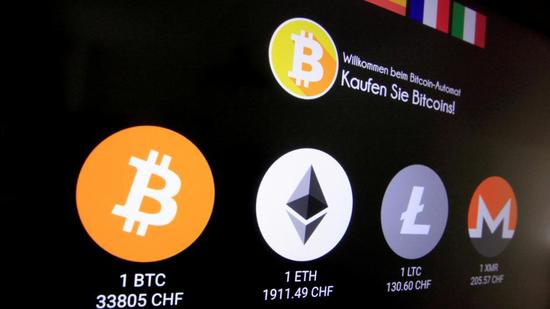Spotlight on ‘private cryptocurrencies’ as debate surrounds new Bill
The Cryptocurrency and Regulation of Official Digital Currency Bill, 2021 comes up for discussion soon, days after the RBI warned that cryptocurrencies pose concerns surrounding financial stability
Cryptocurrency regulation will be up for discussion in the winter session of Parliament, which starts on November 29. The Cryptocurrency and Regulation of Official Digital Currency Bill, 2021 comes up days after the Reserve Bank of India (RBI) again warned that cryptocurrencies pose concerns surrounding financial stability.

The summary of the Bill, which has been listed with other Bills that’ll be introduced in Parliament, does create some confusion. It talks about prohibiting all “private cryptocurrencies”. Yet, the exact definition of a private cryptocurrency remains unclear at this stage.
“This is a good first step in helping control scams and fake schemes. The US takes a similar stance. Would be good to see what the definition of ‘private’ is and how it evolves,” says Edul Patel, CEO and co-founder of Mudrex, a crypto investment and trading platform, in a statement shared with HT.
Is cryptocurrency not like real money?
Before we try to understand what the definition of a “private cryptocurrency” could possibly be, it is important to understand how cryptocurrencies work. These are virtual currencies – they exist only in digital form. Bitcoin is a popular cryptocurrency. There are many others. These currencies are not issued by a central bank or a regulatory body, such as the RBI or the Bank of England.
Also Read: Cryptocurrency crash: Bitcoin, Ethereum fall in value. Here are possible causes
Yet, they work in pretty much the same way in the digital world – they are used for carrying out financial transactions such as payments and money exchanges. You can buy crypto coins with real money, in the hope that their value increases over time. Much like how the share market works.
How do cryptocurrencies work?
Cryptocurrencies work on blockchain technology. A blockchain is a decentralised ledger - in other words, a register or a file - of transactions using crypto coins. This isn’t maintained or stored in one place or with any central authority. Instead, it is spread across a network of computers, also known as peer-to-peer networks.
This system is used to authenticate transactions done using crypto coins. The appeal is two-pronged - the security of the transaction chain and the anonymity it usually provides. There can be traceability of transactions, though, with wallet addresses, and anonymity shouldn’t be mistaken for blanket privacy.
How many cryptocurrencies are there?
According to data from research firm CoinMarketCap.com, there are about 14,500 different cryptocurrencies that you can buy and sell. That also includes stable coins, which are pegged with the value of fiat currencies (Tether, for example), and tokens, which are subsets of cryptocurrencies.
What is a private cryptocurrency?
The term “private cryptocurrency” is used in the new Bill and it has flummoxed everyone, since there is no definition or scope mentioned. Most popular cryptocurrencies globally, such as Bitcoin, Ethereum, Binance Coin, Tether and Cardano, to name a few, all use publicly available ledgers that trace transactions back to crypto wallets that were used. Whether these cryptocurrencies fall within the ambit of what the Bill defines is not known yet.
On the other side of the coin - no pun intended - there are privacy-focused crypto coins such as Zcash, Monero, Verge Currency, Dash and Zen, to name a few. These coins attempt to anonymise transactions with measures such as not saving transaction details on the decentralised ledger, randomising wallet addresses, integrating with services that hide your IP addresses, and unlink transactions. These coins are routed through multiple networks before being delivered to the intended destination.
Should you hold on to your crypto coins?
The answer isn’t simple. A lot will depend on how “private cryptocurrencies” are defined. The summary of the Bill refers to the creation of a framework for the official digital currency that will be issued by the RBI. That would lead to the expectation that a blanket ban on cryptocurrencies may not be on the cards.
A few weeks ago, there was talk of bringing earnings from crypto coins within the ambit of the income tax net - something that could be announced in the budget next year. “There will be speculation on both sides. The good thing is, more people within the government are aware of how crypto works,” tweeted Nischal Shetty, founder and CEO of WazirX, a crypto trading platform.
A blanket ban isn’t entirely off the table, though. China announced a blanket ban on cryptocurrency trading in the country in September. All crypto exchanges in the country are banned from operating. Globally, there is more receptive regulation for crypto coins. Canada became the first country to approve a Bitcoin-traded fund in February. The UK considers cryptocurrency held by citizens as property and investors pay taxes on crypto profits. Singapore has a similar definition for crypto ownership. In Japan, cryptocurrencies are recognised under the country’s Payment Services Act (PSA). Cryptocurrency is legal in most of the EU countries.
Get Current Updates on India News, Lok Sabha Election 2024 live, Infosys Q4 Results Live, Elections 2024, Election 2024 Date along with Latest News and Top Headlines from India and around the world.




